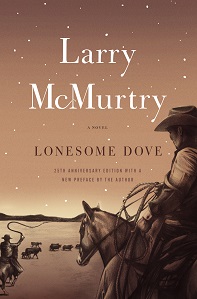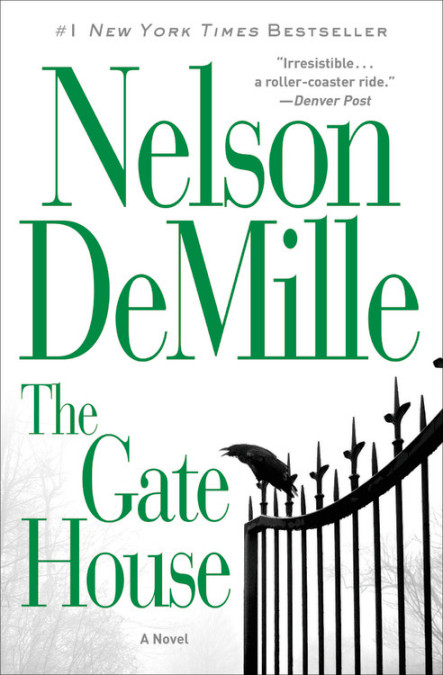When you find a classic novel that resonates with you, it’s one of the most special moments as a reader. Not only do you feel connected to the generations before you who lifted the book up, but you get to help extend the legacy, keeping the classics alive for more generations to come. But these rediscovered reviews don’t just recommend classics; they also explore them in all their historical complexities.

Rediscovered Reviews: 6 Timeless Classics We Can’t Get Over
Sherriff’s novel—originally published in Great Britain in 1932 and newly published by Scribner last September—never rushes, and it is the kind of quiet book we sometimes need. Readers can see themselves in the characters: Mr. and Mrs. Stevens are desperate for the trip to go well; they fret over small details, like changing trains and reserving a private cabana. Mary and Dick, the two older children, are each at once disappointed by the adult world and excited about its possibilities. There are hints that this story’s way of life is ending: Seaview, the boarding house they have always stayed in, won’t be able to keep up with the newer flashy hotels much longer. The Stevens’ family dynamic will soon evolve, too.
The novel is an explication of a two-week vacation, and I read it slowly, savoring each day, the way you try to do with a vacation, before it slips through your hands. It is both a period piece, set in early twentieth-century England, and a timeless, always-relevant story. While contemporary readers can relate to the swims in the ocean and lying in the sand, they also get to imagine what life was like with bathing dresses and charabancs (motor coaches used for sightseeing) and dance halls and evening promenades.
This charming, timeless classic about a family of five setting out on their annual seaside vacation is “the most uplifting, life-affirming novel I can think of...the beautiful dignity to be found in everyday living has rarely been captured more delicately” (Kazuo Ishiguro).
Meet the Stevens family, as they prepare to embark on their yearly holiday to the coast of England. Mr. and Mrs. Stevens first made the trip to Bognor Regis on their honeymoon, and the tradition has continued ever since. They stay in the same guest house and follow the same carefully honed schedule—now accompanied by their three children, twenty-year-old Mary, seventeen-year-old Dick, and little brother Ernie.
Arriving in Bognor they head to Seaview, the guesthouse where they stay every year. It’s a bit shabbier than it once was—the landlord has died and his wife is struggling as the number of guests dwindles every year. But the family finds bliss in booking a slightly bigger cabana, with a balcony, and in their rediscovery of the familiar places they visit every year.
Mr. Stevens goes on his annual walk across the downs, reflecting on his life, his worries and disappointments, and returns refreshed. Mrs. Stevens treasures an hour spent sitting alone with her medicinal glass of port. Mary has her first small taste of romance. And Dick pulls himself out of the malaise he’s sunk into since graduation, resolving to work towards a new career. The Stevenses savor every moment of their holiday, aware that things may not be the same next year.
Delightfully nostalgic and soothing, The Fortnight in September is an extraordinary novel about ordinary people enjoying life’s simple pleasures.
MENTIONED IN:
DAWN is the first book in Octavia Butler’s Xenogenesis series, which starts when humans are no longer living on earth but instead are forced to make a life on a ship steered by aliens called the Oankali. By the end of the third book, the story has progressed many decades and forces its reader to imagine a world dominated by others.
Meet Lilith, a woman who wakes up in a strange white room with no doors or windows and later discovers she’s been abducted by an advanced alien race from an Earth dying at the hands of war. We are witnesses to Lilith’s confusion, apprehension, and fear as she is forced to adapt in a world with creatures who don’t claim a planet as home but instead travel through the universe seeking other forms of life to trade with. Imagine yourself in Lilith’s shoes for a moment: you are no longer at the top of the food chain; you are no longer the smartest being to cross the land.
DAWN breaks down what it means to be a creature of this world and others in simple terminology, but with the confidence to educate. Although the collection is almost thirty years old, the story confronts our present-day political climate in terms of what we can accomplish if we would simply work together. Butler writes that “[the Oankali] are not hierarchical, you see. We never were. But we are powerfully acquisitive. We acquire new life—seek it, investigate it, manipulate it, sort it, use it. We carry the drive to do this in a minuscule cell within a cell.”
No matter the inevitability of time’s march, it is life’s twists and turns that afford each of us the opportunity to grow and impact our surrounding world. That is the idea, at least, behind Jennifer Egan’s Pulitzer Prize–winning masterpiece, A VISIT FROM THE GOON SQUAD.
Meet music mogul Bennie Salazar and his young personal assistant, Sasha. The first chapters of the novel alternate between their two points on view. Both Bennie and Sasha narrate in the present day to allow the reader a first-person account of when they knew one another intimately. Sasha, recently let go by Bennie, is on a date and indulging in the kleptomania that has left her both unemployed and living in a tiny apartment filled with random, useless objects. Bennie, now an aging music executive, is attempting to salvage the deal to sign one of his similarly waning artists but is hampered by his “shame memories,” memories that extinguish the creative spark he so desperately hopes to re-create later in life. These are the brief portraits Egan initially provides of her flawed characters. What follows is a journey that reveals the powerful relationships that shaped these two people, tracing their lives through intricate passages of time.
Jennifer Egan brilliantly reveals the pasts of two music industry veterans in this Pulitzer Prize–winning novel. With music pulsing on every page, this masterpiece is a startling, exhilarating novel of self-destruction and redemption.
MENTIONED IN:
Wally Lamb’s eponymous character, Delores Price, should be labelled as hungry—for love, for food, for distraction. We meet her at age four switching on the family’s television for the first time, entranced by the seemingly perfect images in front of her. Her early childhood in front of the screen trains Delores to also devour the real-life fantasies around her: the illusion of a loving father who then walks out, her mother’s debilitating depression, the upstairs neighbor whose sinister attention leaves teenaged Delores with years of shame and disgust.
Delores is a joy to read. In her, Wally Lamb has created a character with a witty and dark sense of humor, complicated depths of personality, an exhaustive well of love—while honing in on the heart of all great coming-of-age stories. Through all Delores’s tragedies, fictions, and soul-searching, you as a reader may begin to wonder exactly how—and who—you are, and came to be.
Too often, novels described as coming-of-age solely illustrate adolescence, as if one comes of age and exists in final form at 21. In SHE’S COME UNDONE, Wally Lamb presents a lifetime’s kaleidoscope of emotions and struggles, revealing that sometimes we need to lose everything we ever knew about ourselves in order to, finally, accept who we were all along.
In this New York Times bestselling extraordinary coming-of-age odyssey, Wally Lamb invites us to hitch a wild ride on a journey of love, pain, and renewal with the most heartbreakingly comical heroine to come along in years.
"Mine is a story of craving: an unreliable account of lusts and troubles that began, somehow, in 1956 on the day our free television was delivered...."
Meet Dolores Price. She's thirteen, wise-mouthed but wounded, having bid her childhood goodbye. Beached like a whale in front of her bedroom TV, she spends the next few years nourishing herself with the Mallomars, potato chips, and Pepsi her anxious mother supplies. When she finally rolls into young womanhood at 257 pounds, Dolores is no stronger and life is no kinder. But this time she's determined to rise to the occasion and give herself one more chance before really going belly up.
In this extraordinary coming-of-age odyssey, Wally Lamb invites us to hitch a wild ride on a journey of love, pain, and renewal with the most heartbreakingly comical heroine to come along in years. At once a fragile girl and a hard-edged cynic, so tough to love yet so inimitably lovable, Dolores is as poignantly real as our own imperfections. She's Come Undone includes a promise: you will never forget Dolores Price.
Larry McMurtry’s wonderful gift is his ability to create expansive portraits with a remarkable scarcity of language. The book is over eight hundred pages long, but the words on the page are precise and to the point. He never uses more than he needs in order to put the look and feel and even taste of the American West into one’s mind. It is truly a perfect reading experience, a book for people who want to be swept away.
LONESOME DOVE is an epic read in the tradition of Homer: a story about hardship, the worthiness and sometimes foolhardiness of being brave, the valor of the American warrior known as the cowboy, the end of the West, the fierce ties that bind people together, and the finality and unpredictability of death. It is a searing book, and worth revisiting.
A love story, an adventure, and an epic of the frontier, this Pulitzer Prize— winning classic is the grandest novel ever written about the last defiant wilderness of America. Journey to the dusty little Texas town of Lonesome Dove and meet an unforgettable assortment of heroes and outlaws, whores and ladies, Indians and settlers. Richly authentic, beautifully written, always dramatic this is a book to that will make you laugh, weep, and dream.
MENTIONED IN:
DeMille—a name synonymous with suspense thrillers—is renowned for delivering slick plots, action-filled adventures, and memorable characters you’d want to sit down with to share a beer. DeMille so brilliantly encapsulates prior events to set the stage for THE GATE HOUSE that, although a sequel, it reads like a stand-alone novel. Also noteworthy but unsurprising is DeMille’s signature characterization: John Sutter is wry, sarcastic, and utterly charming; his humorous asides to the reader—from imaginary letters to Emily Post to the evolving nicknames for his former in-laws—provide much-appreciated levity as the narrative hurtles toward a breathtaking face-off.
Photo credit: iStock / takayib

















